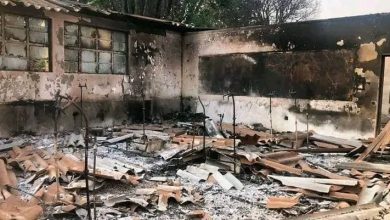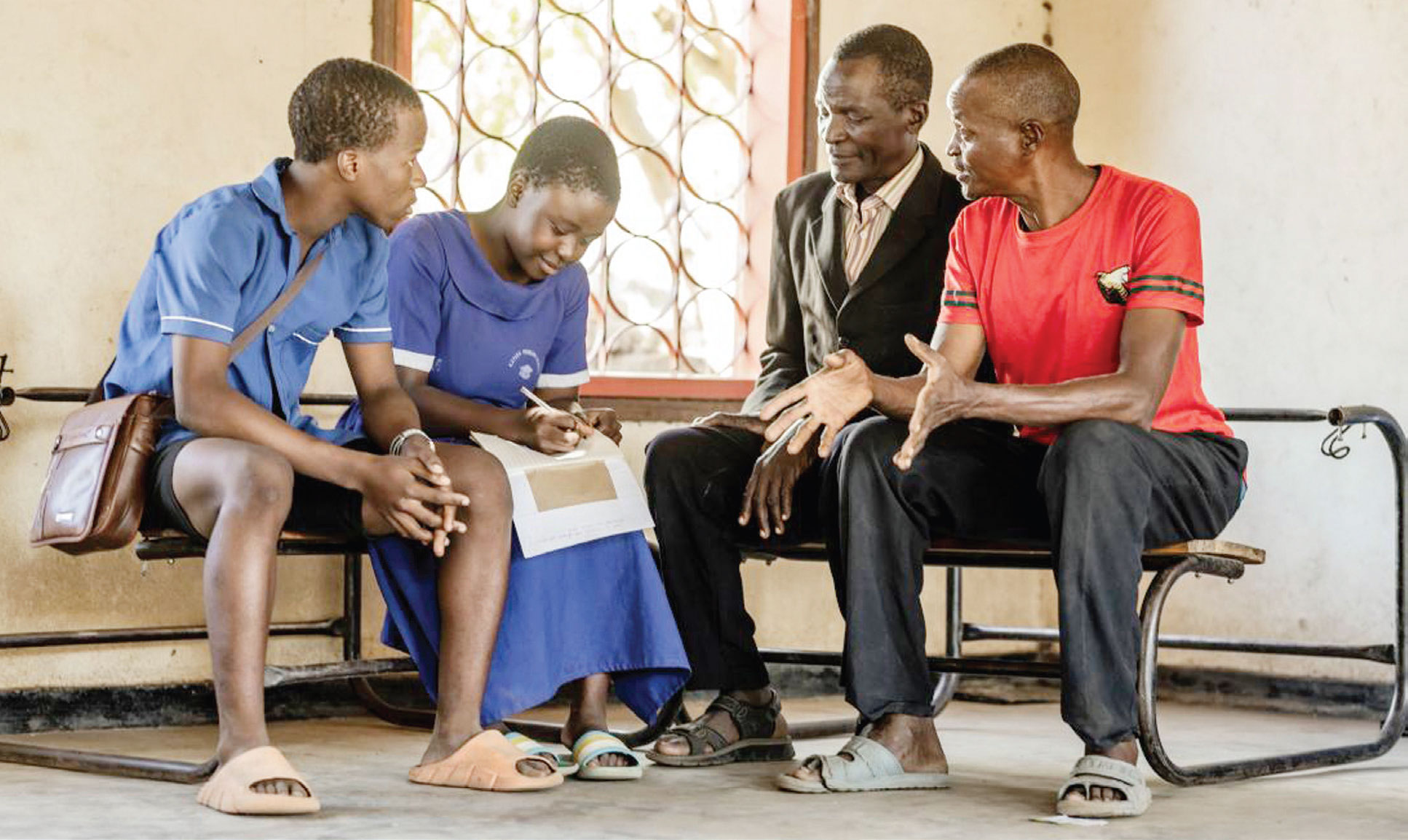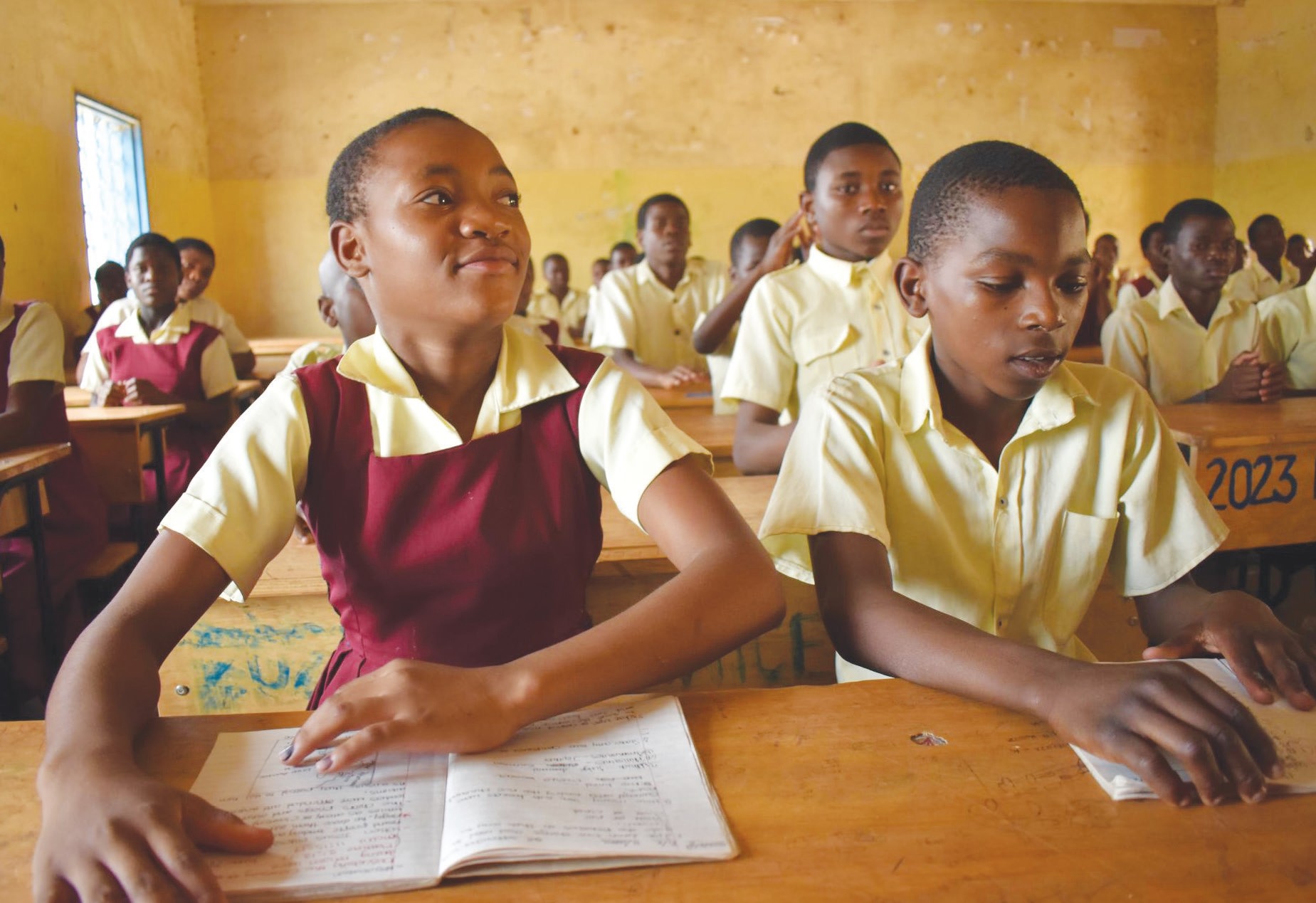Solving the adult literacy challenge
After a year of study in basic education, the Standard Three drop-out has attained a certificate from Women and Law in Southern Africa (Wlsa) under the Reflect programme, symbolising her competence in reading and writing.
Jabesi says she dropped-out of school after she lost her parents within a year. Her uncle took her in, but the best he could do, was to teach her business.
“I started living with my uncle and he said he could not afford to send me to school. I grew up watching him run his groundnut business and when I was old enough to be independent, I ventured in the same business. It was the only thing I knew,†said Jabesi.
However, it was not long before she lost her business to excessive losses. She believes it was because she could not make proper calculations on how much was spent against the selling price to make a profit.
With the skills she has attained over the year, Jabesi believes she can revive her business and run it better.
“I have run the business for years but most of the time I found myself injecting more money into it until I couldn’t put in any more. Now, I know it was because of my poor arithmetic skills.
“Vendors would come from as far as Blantyre and take advantage of our ignorance. Now I am hopeful that things will turn around for me and my six children,†said Jabesi.
With funding from the Organisation for Individual Relief (Soir) Wlsa Malawi is implementing a project called Building Community Capacity Competence to deal with HIV and Aids from a gendered and a rights-based approach using Reflect learning methods. The project is being implemented in Mangochi and Nkhotakota.
Jabesi is one of the 173 men and women who have recently graduated in Nkhotakota, adding to 1 500 who have graduated over the past six years in Mangochi.
The project hopes to address the low literacy rate in the country, low awareness and use of provisions of the law and human rights by women and inadequate community capacity and competence to deal with HIV and Aids from a rights based approach.
According to the 2008 Population and Housing Census which defines literacy as the ability of one to read and write in any language, Malawi has a literacy rate of 64 percent, with 69 percent of men literate as compared to 59 percent women.
Wlsa national coordinator Seodi White says the current project framework is designed in such a way that the legal rights education and HIV and Aids competence building and enhancement programme is tied to adult literacy learning for men and women.
This means that adult men and women learn how to read and write through regular classroom-type of lessons in which legal rights and HIV and Aids competence are an integral part of the reading and writing.
“With what the women and men have learnt, they can start small businesses, they are eligible to access loans from financial lending institutions when they show their capacity to read and write. We work with the Ministry of Education, so this adds value to their qualifications. Furthermore, they will also use the skills to develop their areas.
“We have had experience in the past where after graduation, a community constructed a health centre and another constructed a borehole without any outside help. They are in a position where they can understand and critique issues that affect them,†says White.
A baseline study conducted by Wlsa shows that lakeshore districts have little regard for education. Children are introduced to fish farming and other business at an early age, there are early child marriages among both boys and girls, and they lack role models who can show them how education can change their lives.
As such, the districts have the worst literacy rates in the country, with Nkhotakota having 168 000 illiterate adults, according to the 2008 Population and Housing Census.
“In a sample of 200 people, more than 70 percent could not tell their age which is very shocking. Worse still this area is affected with early marriages which results in women having more children than they can comfortably take care of. With basic education and understanding of social issues, women are in a better position to make decisions about their lives.
“After learning, we put the learners through a test and only those that have passed are awarded with the certificate. For example, in Nkhotakota, we registered 295 people and it is the 173 that have passed,†said White.
T/A Malengachanzi whose area is one of the beneficiaries, said the project has helped more women in district learn to read and write.
According to Malengachanzi, the biggest challenges in the area that lead to high illiteracy levels, include early marriages brought about by poverty and lack of appreciation for education.
“People in this area never really appreciated the importance of education. We are a people that believe in business but with Wlsa’s intervention, we know better. Because these women are educated and understand the importance of school it becomes easy for them to encourage their children to work hard in class.
“When we combine the skills that the women have gained with those that our children are learning in schools, I assure you Nkhotakota is going [to change for the better]. What is more admirable about the project is that our female chiefs have also taken part in the classes,†he said.
Other than educating the elderly, the project has also created employment for some of the educated in the areas. In each area with a learning centre, Wlsa works with two community-based educators whose main responsibility is to impart knowledge in the learners.
One of the teachers, Lixna Mafuta, said the project has given her and others a source of livelihood and more importantly, it has allowed communities to work together to develop their areas.
“We underwent intensive training for close to two weeks where we were drilled on how to approach the lessons and built our capacity, to better understand issues of human rights, gender-based violence, inheritance, wills and deceased property share so that we teach with understanding,†says Mafuta.
In the year of study, courses covered include human rights mainstreaming, gender and development mainstreaming, wills and inheritance, advocacy at village level, HIV and Aids mainstreaming, sexual reproductive health rights which includes child marriages, maintenance and child support, among others.
The research was conducted by Wlsa Malawi in the areas of traditional authorities Kanyenda, Malengachanzi, Mwadzama and Mwansambo.





